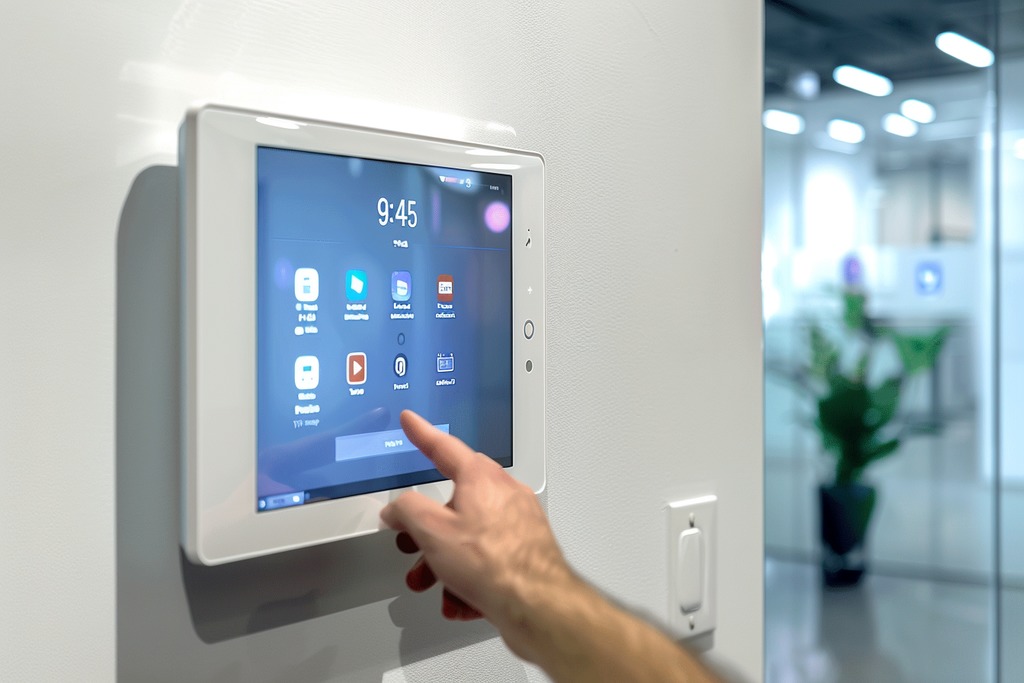The landscape of real estate is constantly evolving, driven by relentless technological advancements that are reshaping how homes are sold and bought. In this dynamic market, real estate professionals and homeowners alike need to stay informed about the latest innovations. These technological trends not only streamline the buying and selling process but also enhance the value and appeal of properties on the market. As we delve into the future of real estate, let’s explore some groundbreaking tech innovations that are poised to transform home sales.
Virtual Reality (VR) and Augmented Reality (AR) Tours
Imagine walking through a home, inspecting every nook and cranny, without ever leaving your couch. VR and AR technologies are turning this into a reality, offering immersive property tours to potential buyers. This innovation is especially beneficial in today’s global market, where buyers might not always be able to visit properties in person. By donning a VR headset or using an AR-enabled smartphone, clients can experience a 360-degree view of the property, appreciating its spatial dynamics and design nuances as if they were physically present. This technology not only saves time but also broadens the pool of potential buyers, making it a game-changer in the real estate industry.
Artificial Intelligence (AI) and Machine Learning (ML)
AI and ML are at the forefront of transforming real estate transactions, making them more efficient and personalized. These technologies are being utilized in various aspects of the selling process, from price optimization to identifying potential buyers. AI algorithms analyze vast amounts of data, including market trends, property features, and buyer preferences, to suggest the optimal listing price, thereby maximizing the seller’s profit while ensuring the price is attractive to buyers.
Moreover, AI-powered chatbots are revolutionizing customer service, providing instant responses to inquiries and guiding buyers through the initial stages of the purchasing process. This level of automation and personalization not only enhances the buyer’s experience but also allows real estate agents to focus on more critical aspects of the sale.
Internet of Things (IoT)
The integration of IoT in homes is enhancing property appeal, making them smarter and more energy-efficient. Smart thermostats, security cameras, lighting systems, and even smart refrigerators are becoming increasingly popular, offering convenience and peace of mind to homeowners. These smart home features can be a significant selling point, as they promise a more connected and efficient lifestyle. Sellers highlighting these IoT enhancements can attract a tech-savvy demographic looking for homes that cater to a modern, digital lifestyle.
Blockchain Technology
Blockchain is set to revolutionize the real estate industry by making transactions more secure, transparent, and efficient. This technology offers a decentralized ledger system, ensuring the authenticity and accuracy of property records, contracts, and transactions. By reducing the reliance on traditional intermediaries such as banks and title companies, blockchain can significantly expedite the closing process and reduce associated costs.
Furthermore, blockchain enables the tokenization of real estate assets, allowing property ownership to be divided into digital shares. This could potentially lower the barriers to real estate investment, making it accessible to a broader audience and increasing liquidity in the market.
Drones for Aerial Photography
Drones are reshaping real estate marketing by providing stunning aerial photographs and videos of properties. These high-resolution images offer a comprehensive view of the property, its layout, and the surrounding area, giving buyers a better sense of the location and appeal of the home. Drones can capture angles and perspectives that traditional photography cannot, providing an edge in a competitive market. This visual allure not only enhances online listings but also can captivate potential buyers’ attention and spark their interest.
Big Data Analytics
Big data analytics is empowering real estate professionals with insights into market trends, consumer behavior, and pricing strategies. By analyzing large datasets, agents can identify patterns and make data-driven decisions to optimize marketing efforts, target the right audience, and close deals faster. This level of analysis helps in accurately forecasting market movements, advising sellers on the best times to list their properties, and crafting personalized marketing strategies that resonate with potential buyers.
The Bottom Line
As technology continues to advance, the real estate industry stands on the brink of a significant transformation. These innovations are not just reshaping how homes are marketed and sold but are also redefining the value proposition of real estate transactions. For sellers, embracing these technologies can mean faster sales, higher prices, and a more streamlined process. For buyers, it translates into more informed decisions, greater convenience, and enhanced satisfaction.
In a market as competitive as real estate, staying ahead of the curve is paramount. By leveraging these technological advancements, sellers can differentiate their properties, attract more buyers, and ultimately secure more favorable deals. As we look to the future, it’s clear that technology will continue to play a pivotal role in the evolution of the real estate industry, bringing us closer to a future where buying and selling homes is more efficient, transparent, and accessible than ever before.








